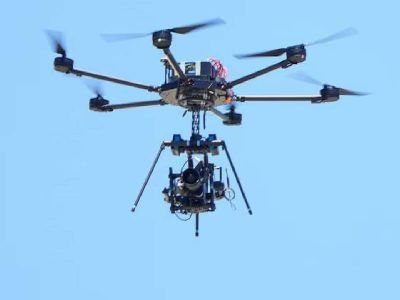Doctors at Sir Ganga Ram Hospital had recently embarked on a delicate surgery to remove a 6.5 cm tumour from a 30-year-old man’s food pipe.
The patient was admitted at SGRH with difficulty in swallowing, where, after investigations, doctors found a “large tumour”, bulging in the food pipe region, doctors said on Sunday
The hospital, in a statement on Sunday, claimed that this was “one of the largest tumours removed endoscopically in India”.
According to Anil Arora, chairman, Institute of Liver Gastroenterology and Pancreatico Biliary Sciences, at the hospital, “We recently removed a large submucosal tumour (6.5 cm in size) from the food pipe (oesophageal leiomyoma — a tumour arising from the muscular layer of oesophagus and protruding into the lumen causing dysphagia) in the 30-year-old male patient”.
These types of large tumours are traditionally removed by surgery which has far more morbidity and is associated with longer hospital stay, the doctors said.
The procedure used for this patient is known as “submucosal tunnelling and endoscopic resection (STER)”, the hospital said.
According to Dr Shivam Khare, consultant, Department of Gastroenterology, at SGRH, “In the STER procedure, firstly we injected saline at the base of the tumour that helped us lift the tumour, and create a tunnel all around it, by dissection of fibrous tissue around it, and in separating it from all layers of food pipe”.
“Once the tumour got separated, we were able to scoop the tumour in lumen (cavity) of oesophagus from the submucosal tunnel behind the oesophageal wall into the oesophageal lumen. Subsequently, the tumour was successfully retrieved from the mouth, and the patient was discharged after two days with gradual resumption of normal diet,” Khare said.
Endoscopic removal of a large tumour is a “challenging task”. Generally regular oval-shaped smooth oesophageal tumour up to 3 cm in size can be removed endoscopically by expert endoscopist, but in this case, the tumour was more than 6 cm in size with lobulated irregular pear-shaped configuration. Irregular shape makes it difficult to separate a tumour from all layers of food pipe, Arora said.
The second challenge was the “sheer size of the tumour” as it created hurdles not only in mobilising it out of submucosal tunnel into oesophageal lumen, but also in getting it out from the oesophagus via throat through mouth, Khare said, adding, “fortunately a wide range of accessories and endoscopic instruments helped us in successful completion of the procedure without any complications”.
Recent developments in the field of therapeutic endoscopy have opened doors of a new world of minimally invasive, incision-less, non-surgical treatment for various tumours lying within the lumen and the wall of the gastrointestinal tract, the doctors said.
(With PTI inputs)





